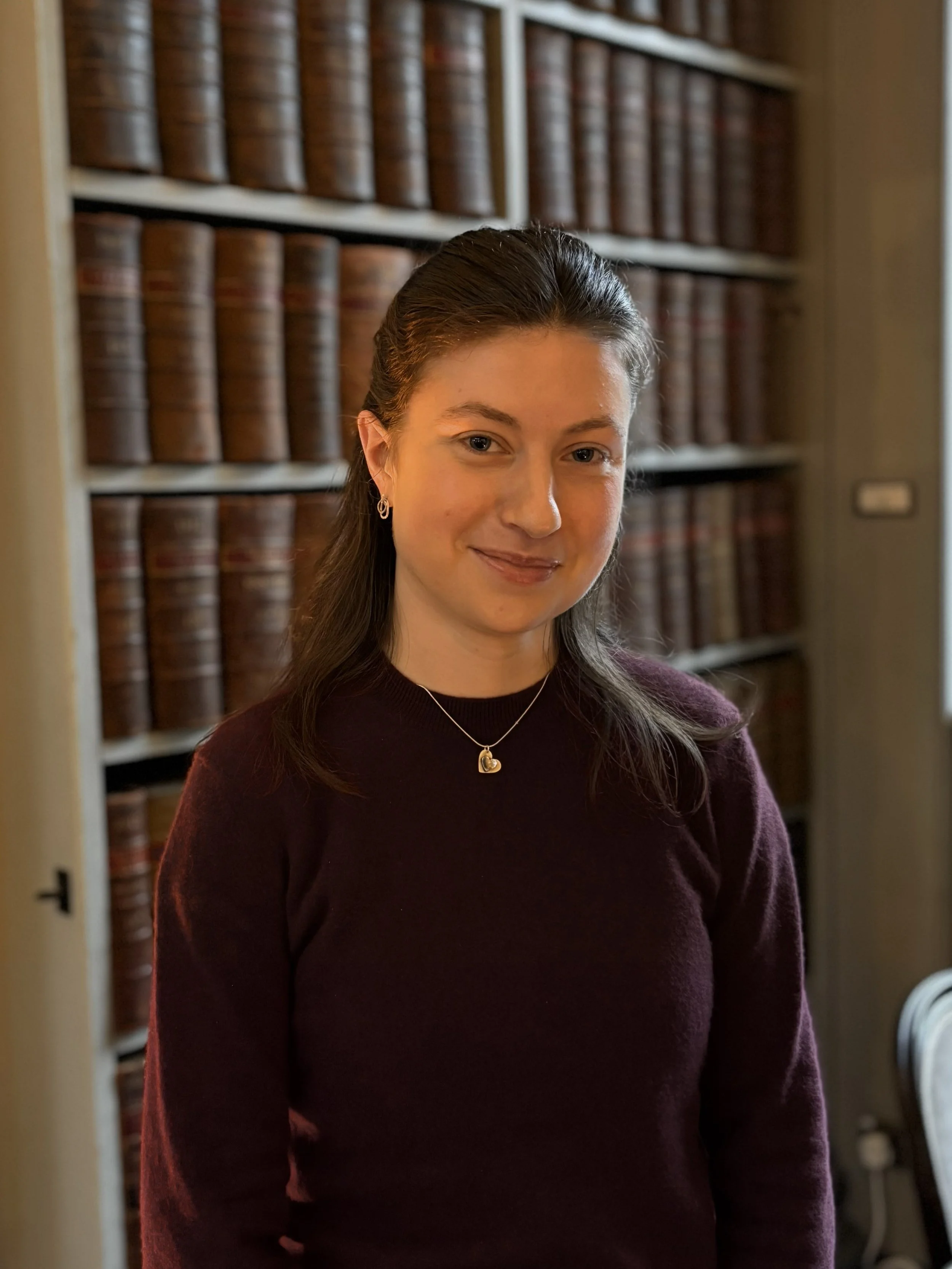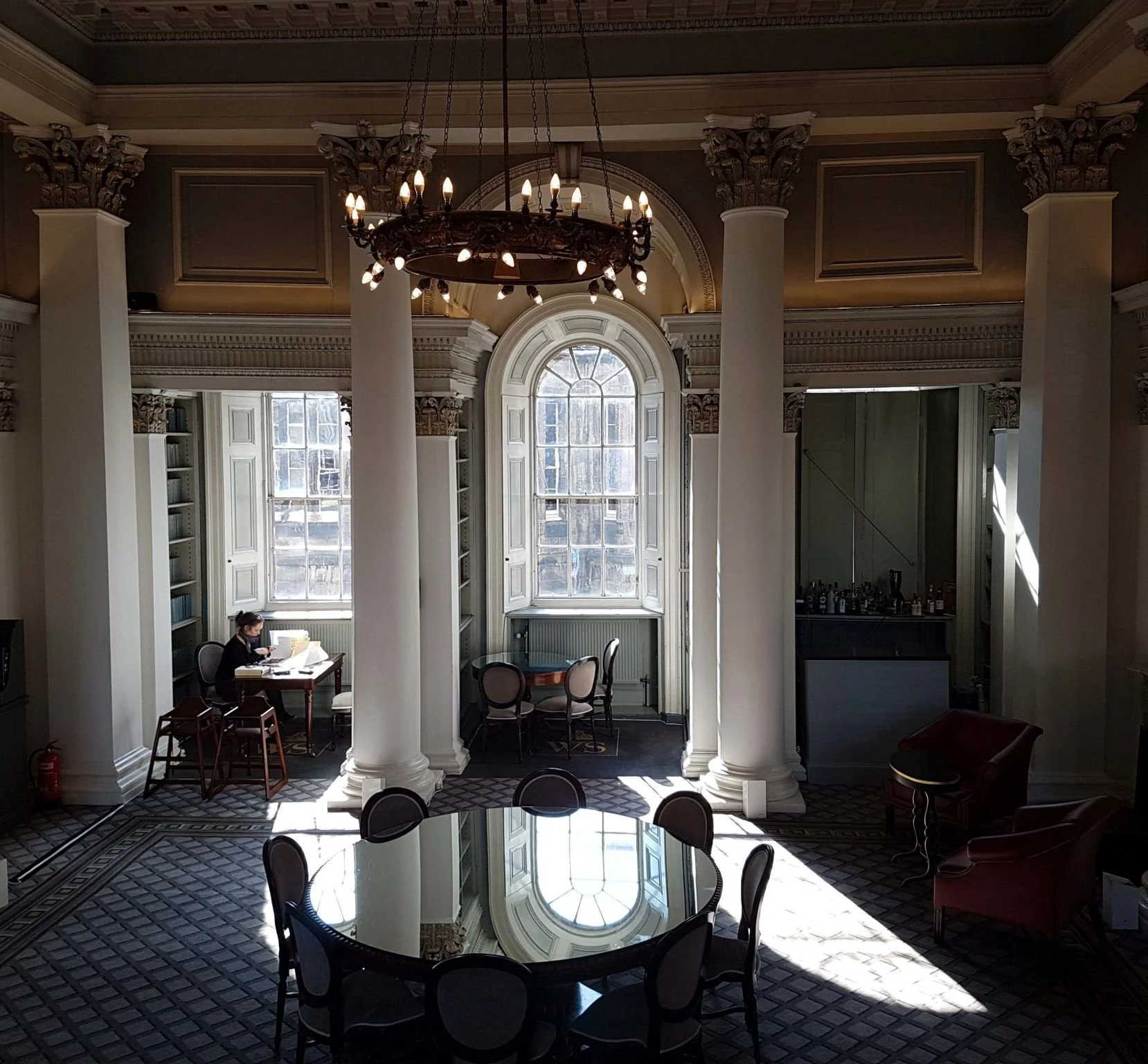Kirsty McEwing is a University of Aberdeen graduate and first year trainee solicitor at the WS Society.
Can we start with you telling us a bit about yourself and what led you to studying law?
At school, I was unsure as to what I wanted to study at university, and what my future career might look like (I think, like most people!).
However, I have always held a strong sense of fairness, integrity, and justice. I knew that I would like to pursue a career where I could act on these values to bring a positive impact to others. Together, this focused me on the legal sector, which is built on upholding the above principles. So, I made the decision to study law at university and continue on the path of qualifying as a solicitor.
A career in law involves working with others and forming close relationships with clients who come to you for help in a time of need. This requires you to demonstrate empathy, be caring and compassionate, listen to others, and provide reassuring communication. Ultimately, it is this personal element which makes a legal career special, unique and extremely rewarding. I wish to continue on my journey to qualifying as a solicitor to develop these sensitive and emotive skills to make a difference to people.
You are a Trainee Solicitor, within the Governance and Charities team, at the Society. Please tell us about your role and what a typical week looks like.
I am now four months’ into my traineeship at the WS Society, within the Governance and Charities team, led by Sophie Mills WS.
I didn’t really know what to expect when starting here, apart from that it was going to be something a bit different. It has been exactly that, in the best way possible!
So far, I have been involved in Trustee meetings, legal research, reviewing contracts, answering client queries via phone and email, event planning, and attending conferences. All of which has allowed me to gain practical experience in the sector from day one! We are a small team here, but our open office space is a great learning environment where I have been able to observe and pick up communication skills and legal knowledge – which, particularly at this stage in my career, is invaluable.
I have been very much welcomed and supported here by Sophie, and the rest of the team. I am particularly grateful for the trust and client-facing opportunities which Sophie has given me. Sophie always makes herself available to ask questions and bounce ideas around, and she takes the time to explain tasks thoroughly. Overall, I am loving being at the Society, I’m trying to make the most of all the opportunities available, and I can’t wait to see what the rest of my time here will bring.
What was your first impression of the WS Society?
My first impression of the WS Society was that it is a very special place.
I didn’t know much about the Society before coming here, so on seeing the stunning building situated in amongst the heart of Scotland’s legal institutions, I knew that the Society would be very exciting to be a part of.
Having now started working here, I can say that the building itself signifies the Society as a whole and the people within it. It is an inviting and welcoming place to be where there is plenty to learn from its history, and from the work and events which it carries out.
The Society upholds standards of excellence, professionalism, integrity, and respect, which, as I mentioned earlier, are values which inspired me to pursue a career in law. I am therefore grateful for the opportunity to undertake my traineeship here and to be held to these standards, and still pinch myself at the surroundings in which I get to do so!
You are a member of the Charity and Third Sector SIG, what would you say to members who are considering joining one of the Society’s Special Interest Groups?
My first meeting with the Charity and Third Sector SIG involved speaking with a group of final year law students from Robert Gordon University, who were studying Charity law. At this meeting, there were charity lawyers who spoke in different capacities and roles, and who were at different stages of their careers. It was great to hear about the Charity law sector from different perspectives and learn about the key legal changes coming into force. I also felt that I could contribute as less than a year ago I was a student with a lot of the same questions!
I would therefore encourage members who are considering joining, to become involved in the Special Interest Groups. The Society offers a range of SIGs, meaning that there is something for everyone! Also, in my time at the Society, I have learnt that the more you put into it, the more you will get out of it. The SIGs are a great example of this as the groups allow members to meet others with the same interests and share knowledge, or to try something new!






















